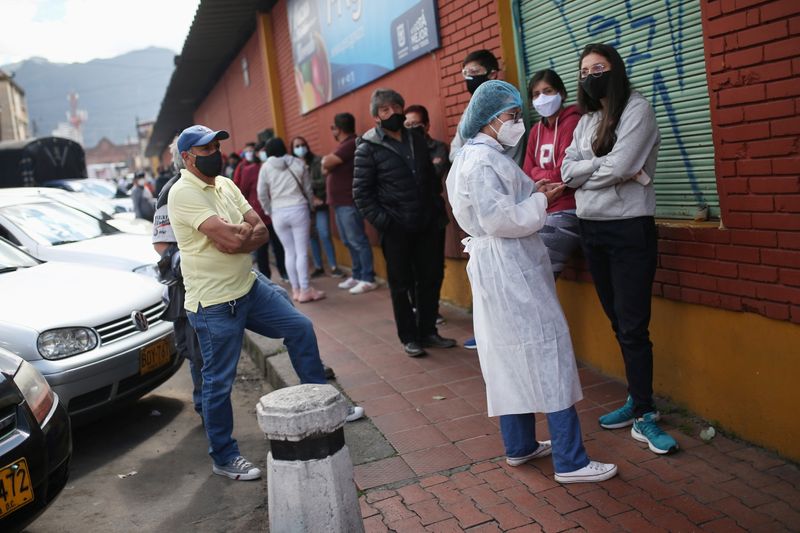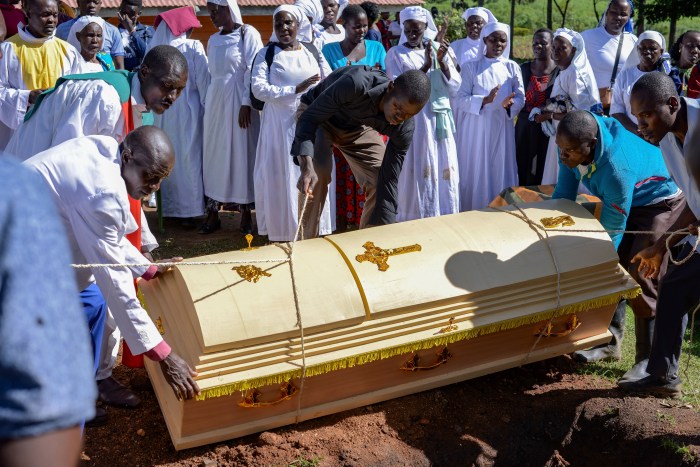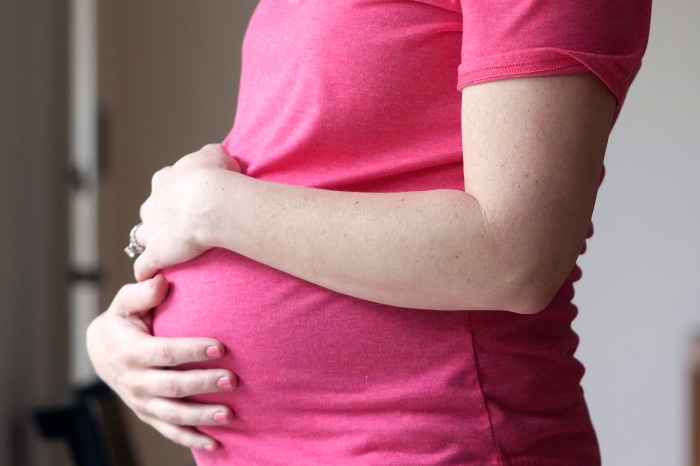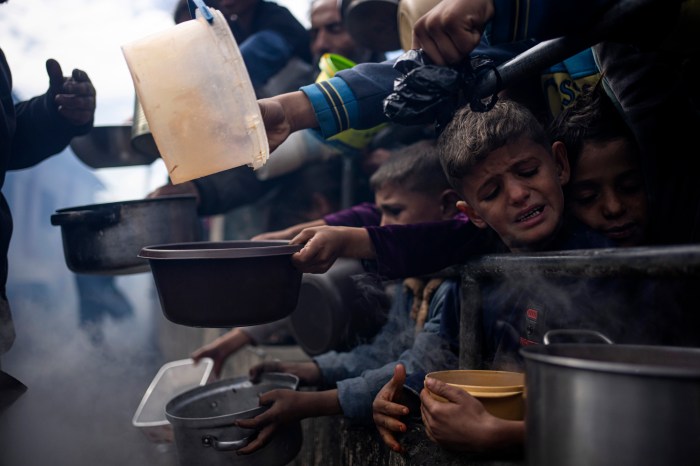BOGOTA (Reuters) – A holiday season uptick in coronavirus infections will give Colombia a rocky start to 2021, Health Minister Fernando Ruiz said on Thursday, while doctors called for quarantines in hard-hit areas.
“We’re going to have difficulties in the first two weeks of January,” Ruiz said during an interview with Colombia’s Caracol Radio, where he attributed growth in coronavirus cases to people mixing over the festive season.
The Andean country has reported more than 1.6 million cases of coronavirus, as well as close to 43,000 deaths. The number of active cases stands at more than 80,000, according to the health ministry.
Coronavirus cases in Colombia have ticked upwards over the holidays with an all time high of 14,941 new cases reported on Dec. 25, the last of four new daily infection records reported in seven days.
“We’re seeing very important growth in cases following relaxation of (biosecurity) measures, especially in December,” Ruiz said.
Rising infection numbers have prompted authorities in some cities to declare curfews, bans on alcohol sales, and limits to when people can shop – based on their national identity number -over the holiday period.
However, current restrictions might not be enough and the government should again impose mandatory isolation measures in areas with high levels of coronavirus cases, Doctor Tatiana Espinosa, president of the Colombian Association of Internal Medicine (ACMI), told Reuters.
On Wednesday the ACMI issued an open letter rejecting behaviors that create large crowds, and called on authorities to implement measures to help slow the spread of the disease.
“We agree there should be a new period of isolation, for at least two weeks,” Espinosa said, adding authorities would need to decide if such measures were performed nationally or just in the most affected regions.
“We cannot throw away everything we have previously achieved,” she said.
(Reporting by Oliver Griffin; Editing by David Gregorio)



















